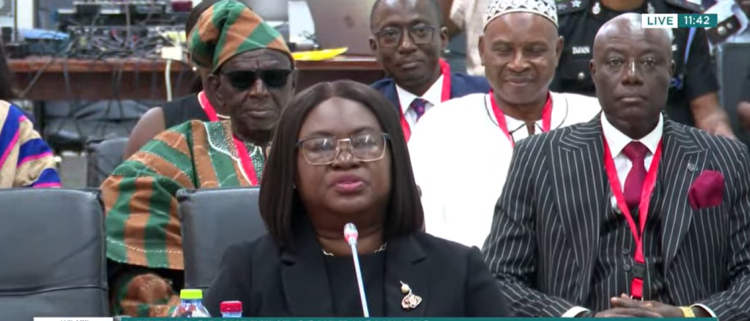Faith-based school rules don’t breach rights, you accepted by enrolling – Justice Amaleboba

Supreme Court judge nominee, Justice Hafisata Amaleboba, has asserted that students who voluntarily choose to attend faith-based schools are bound by the institutions’ codes of conduct, and such expectations should not be viewed as a violation of rights or an act of compulsion.
Appearing before Parliament’s Appointments Committee on Wednesday, June 18, 2025, Justice Amaleboba responded to questions on balancing constitutional freedoms—particularly freedom of religion—with institutional rules in faith-based public schools.
She made clear that while rights are fundamental, they are not absolute and must be exercised within the boundaries of public interest and the rights of others.
“Rights are not absolute. Every right has its limitation, including being limited by the rights of others and the public interest,” she said.
Citing the example of students who enrol in Catholic schools, she argued that once individuals are informed of the school’s religious requirements and choose to attend, they do so willingly and accept the conditions voluntarily.
“If you are in a Catholic school, having chosen a Catholic school, knowing it is a Catholic school and the code of conduct requires that you do certain things and you were informed prior to it and you still chose to attend, then to me it will mean that is not compulsion,” she stated.
According to her, such choices constitute a voluntary act—not an infringement on individual liberty—since students are made aware of expectations such as attending church or participating in other religious activities before enrollment.
“So it is not a compulsion, it is a voluntary act because before you came to the school you were told that this is a Catholic school, we’ll expect you to go to Church on Sundays, we’ll expect you to do this and you took that voluntary decision to attend the school. And so I do not see that it is compulsion,” she added.
Her comments touch on a sensitive area in Ghana’s educational and legal landscape, where past controversies have arisen over students’ rights to opt out of religious activities in mission schools.
Ghanaian tourism
Justice Amaleboba’s position reinforces the principle that institutional identity and informed consent can lawfully coexist with constitutional freedoms.




